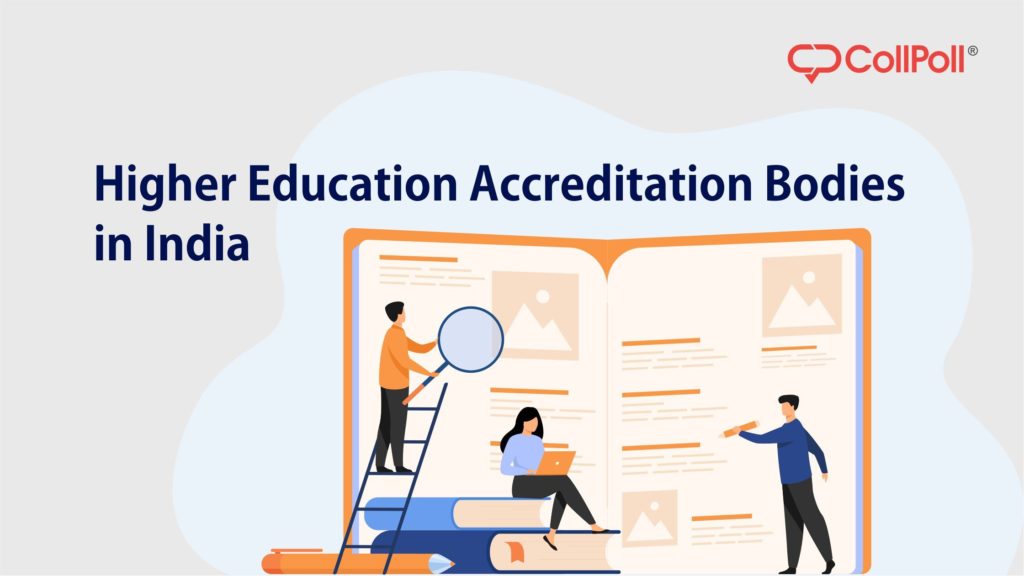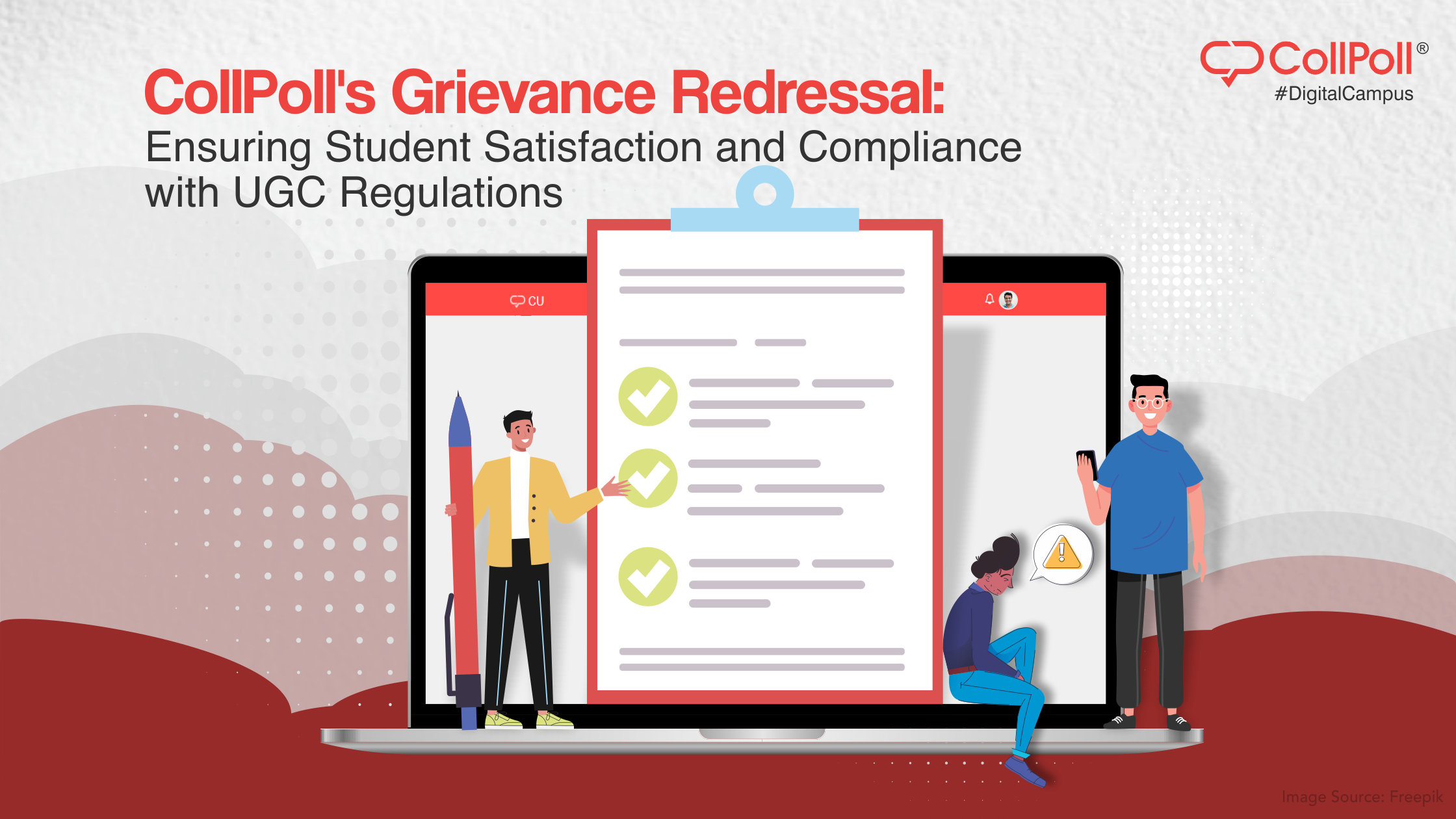Higher Education Accreditation Bodies in India
Higher education accreditation bodies decide the worthiness of the degree awarded by learning institutes in India. Accreditation assures the quality of services of higher learning institutions and courses to any external organization. They can evaluate the credibility of a degree and determine if the institute meets the applicable standards. It plays a crucial role in its acceptance by other recognized organizations and employers.
Therefore, it is of utmost importance for students to keep accreditation on top priority while selecting an institution for higher education. This ensures that their degree or course meets specific educational standards set by the accreditation agency. In India, accreditation is mandatory for all universities except those created under the Act of Parliament. And without it, no higher education institution can reward a degree or refer to itself as a university.
If you are fretting about which educational accreditation board is best for you in India, you have many options to choose from. We have listed the top ones for you.
-
- All India Council for Technical Education (AICTE)
AICTE is an important national-level council regulating technical and management colleges in India. It is responsible for planning and coordinating technical and management education programs and accredits graduate and post-graduate courses for specific categories. Also, AICTE grants approval to start new technical or management institutes, introduce new courses, extend or cancel permission for existing colleges, etc. - Association of Indian Universities (AIU)
AIU is an association of major universities in India, bringing them together on one common platform. It evaluates courses, standards, syllabi, and credits of foreign universities and equates them with courses offered by universities in India. Moreover, it recognizes degrees and diplomas awarded by UGC-recognized universities. AIU is also an implementing agency for agreements signed under the Cultural Exchange Programmes with other nations. - National Assessment and Accreditation Council (NAAC)
NAAC is an autonomous higher education accreditation body that assesses the performance of institutions based on different parameters. It evaluates the quality of higher education through a stringent process and grants grades to institutes based on their reports submitted to the committee of experts. - National Board of Accreditation (NBA)
NBA is an authorized body to accredit technical education courses and programs. It was established with the aim of Assurance of Quality and Relevance of Education, specifically in the technical discipline, including management, engineering & technology, pharmacy, architecture, etc. - Bar Council of India (BCI)
BCI is a statutory body that regulates legal education and practices in India. It recognizes accredited universities and colleges that offer law courses at Diploma, UG, and PG levels. Along with protecting advocates’ rights, interests, and privileges, BCI also lays down standards for professional etiquette and conduct. - All India Management Association (AIMA)
AIMA was set up in 1957 as an apex board for professional management. This non-lobbying organization works with the government, industry, academia, and students to achieve the objectives of the management profession in India. It sets the best management practices and techniques for Indian managers through collaboration with foreign institutions. - Distance Education Council (DEC)
DEC promotes and coordinates distance education in India and sets standards for Open Universities. Constituted under the Indira Gandhi National Open University Act, 1985, it prioritizes a university-level innovative culture with flexible learning. In June 2013, UGC took over DEC by establishing Distance Education Bureau (DEB) to administer distance education programs in India. - Medical Council of India (MCI)
MCI sets uniform and high standards to regulate medical education in India. It recommends recognition or de-recognition of medical qualifications, grants registration to medical practitioners, accredits medical schools, and monitors medical practices. In Sep 2020, NMC (National Medical Commission) replaced MCI. - Dental Council of India (DCI)
DCI regulates dental education and the dental profession across India. It ensures uniform standards of dental education and supervises the curriculum for the training of dentists, dental hygienists, and mechanics, along with the level of examinations and qualifications. This accreditation body is responsible for inspecting the dental colleges and finding out if they are complying with the norms or not. - Pharmacy Council of India (PCI)
PCI was constituted under the Pharmacy Act 1948 to regulate pharmacy education and the pharma profession in the country. It also determines eligibility for practising pharma and frames regulations to be fulfilled by the institutions seeking PCI approval. - National Council for Teacher Education (NCTE)
NCTE oversees all the standards, matters, procedures, and processes associated with teacher education in India. It maintains high norms and regulations to achieve planned and coordinated development of the teacher education system. - Indian Nursing Council (INC)
INC is a regulatory body for nursing education, approving colleges, courses, and regulations at different levels. It establishes and monitors uniform standards for nurse-midwife, auxiliary nurse-midwives and health visitors. The list of accredited universities recognized by INC includes institutions offering Diploma and graduation courses in nursing education. - Indian Council of Agricultural Research (ICAR)
The Indian Council of Agricultural Research (ICAR) is an apex research organisation for coordinating, guiding, and managing research and education in agriculture in the entire country under the aegis of DARE, Ministry of Agriculture and Farmers Welfare. It has a high standing amongst international agricultural research institutions spearheading, guiding and managing agricultural research, education and extension activities for productivity enhancement and diversification of Indian agriculture.
- All India Council for Technical Education (AICTE)
We hope you will find this list of higher education accreditation bodies useful. For more updates on accreditation processes and news, stay tuned to CollPoll. You can reach us via email or a call, and we will serve you with the best of our efforts.





